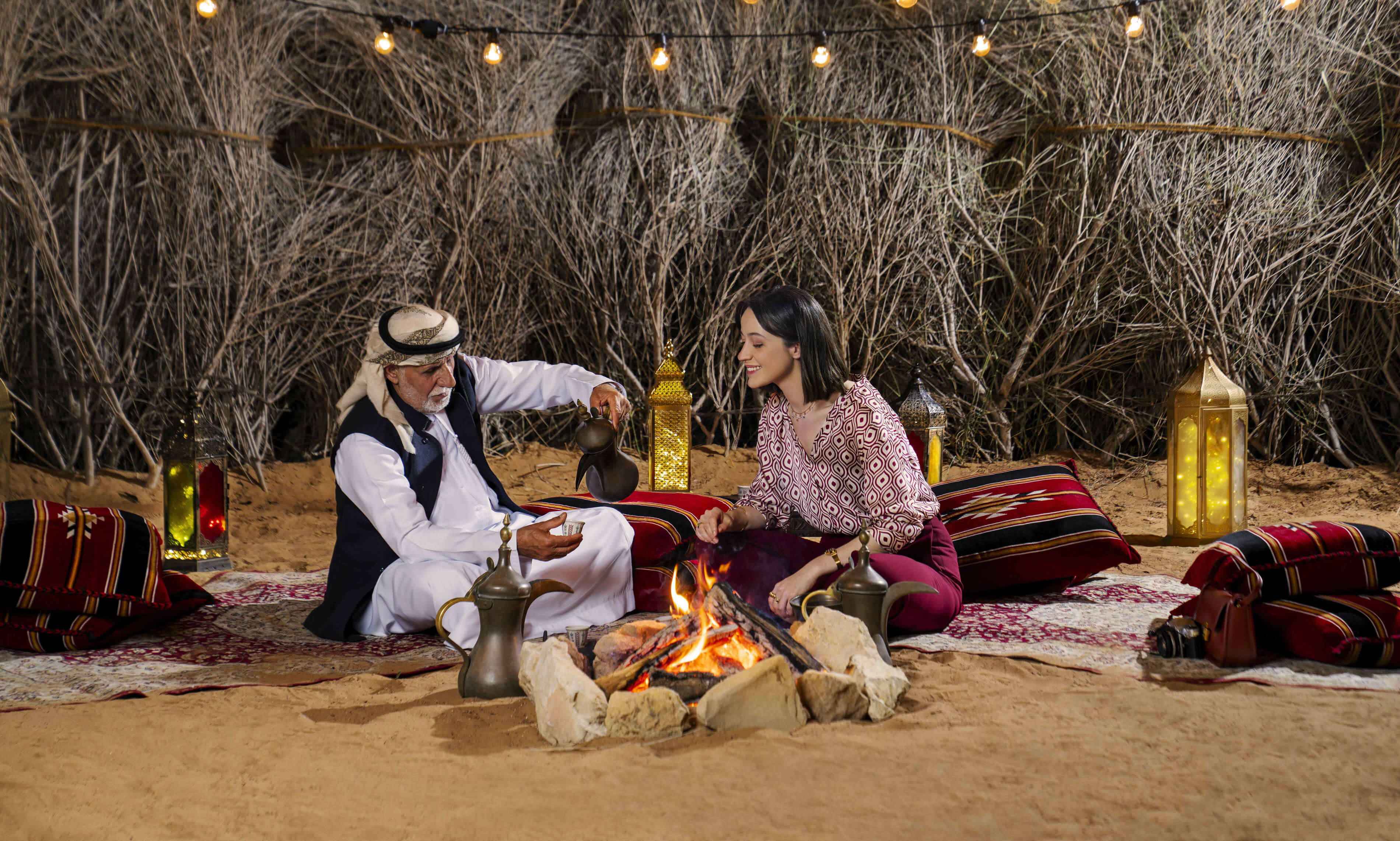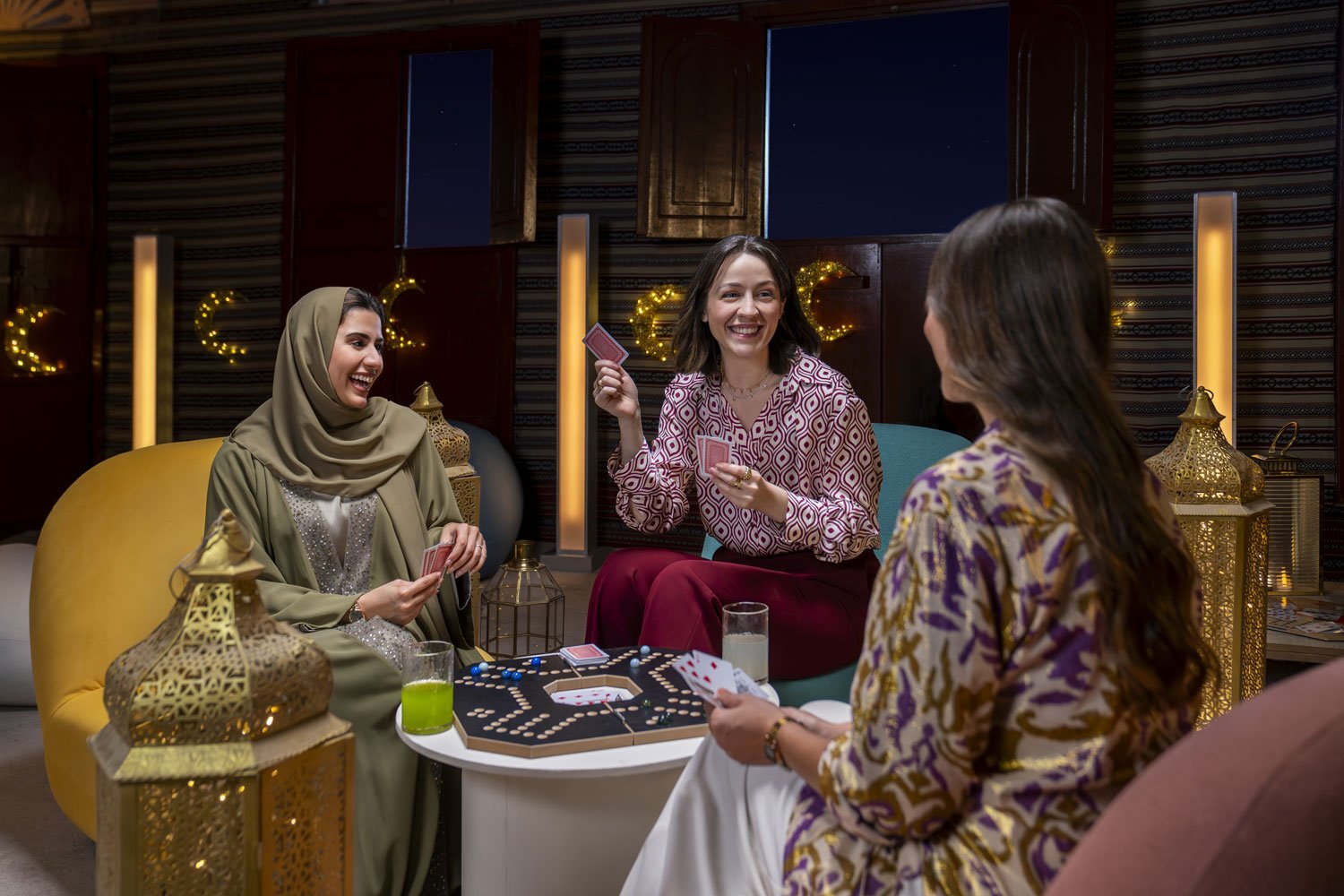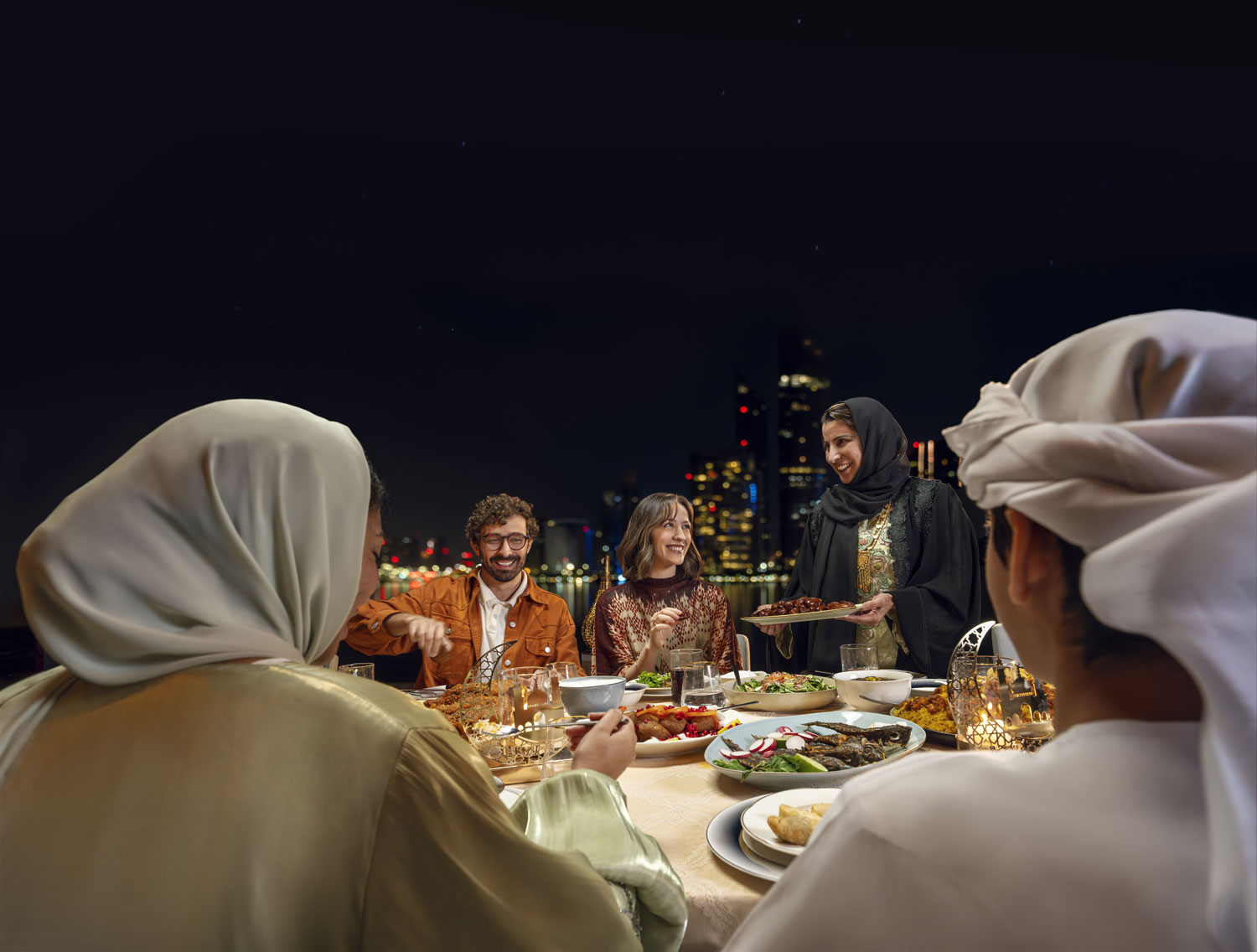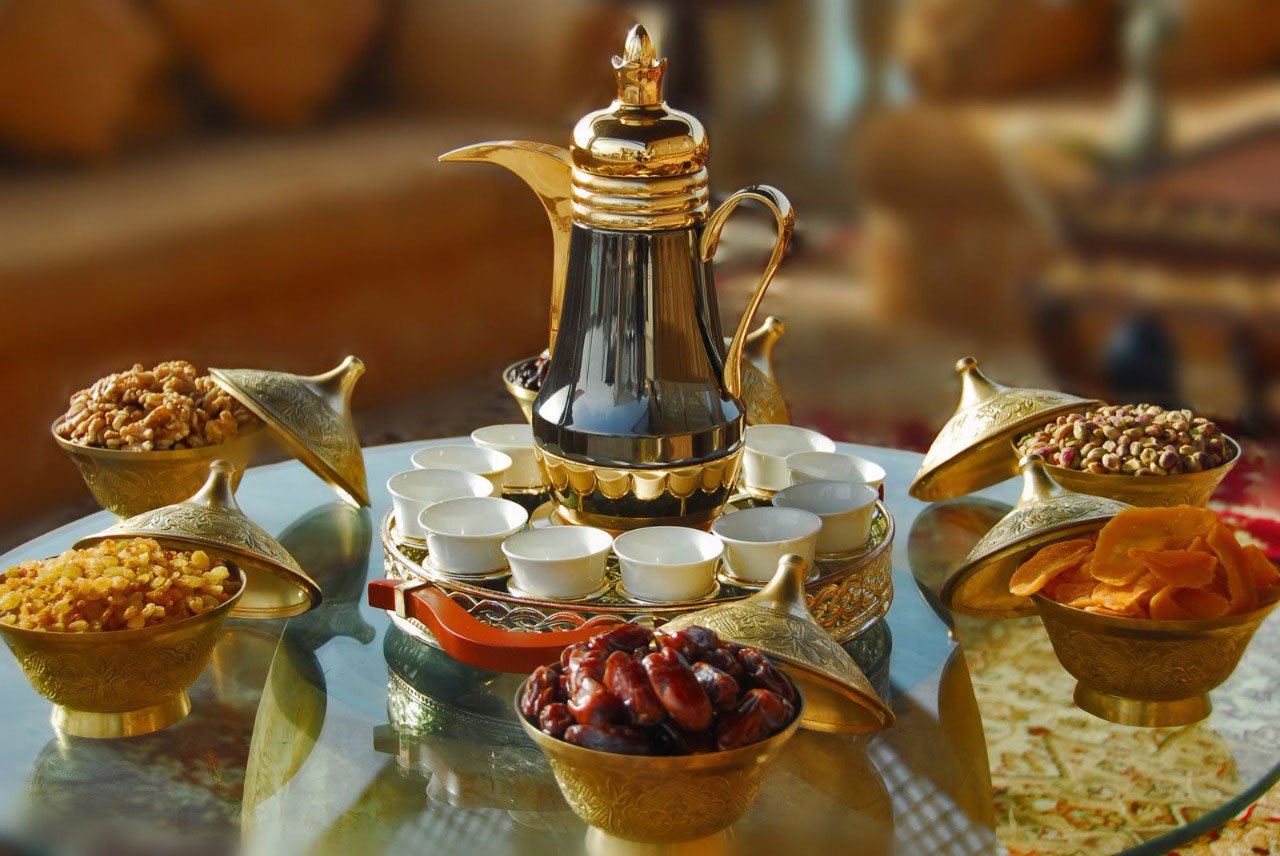Experiencing Ramadan in Abu Dhabi
Ramadan is the ninth month of the Islamic calendar, a lunar calendar with twelve cycles. Ramadan is announced when the first crescent of a new moon cycle is sighted and lasts either 29 or 30 days.
During the month, Muslims around the world fast between sunrise and sunset as an act of worship. There are two main meals in Ramadan: suhoor and iftar. Suhoor is the last meal eaten before the fast begins and takes place early in the morning before sunrise, and iftar is the meal that breaks the fast at sunset.
It is a special time to visit Abu Dhabi, with unique nighttime dining and festive traditions. Everyone can enjoy the added festivities that the destination has to offer during the month, with the opportunity to make deeper connections with the local culture.








.png?rev=fa2bc025b26e4360b0af001b680aa459)



